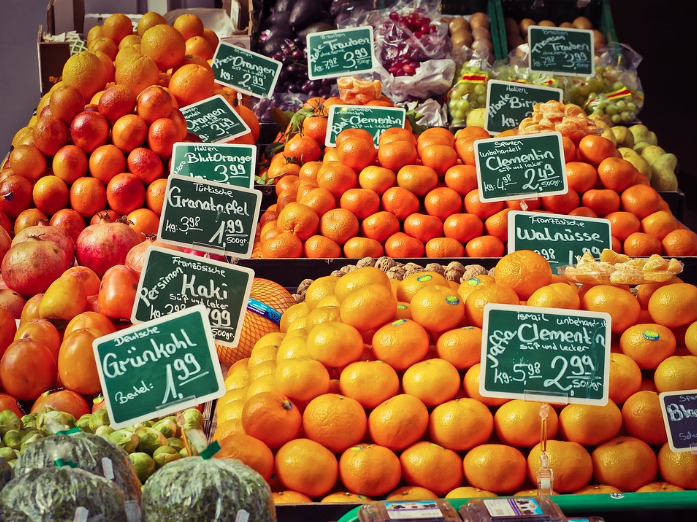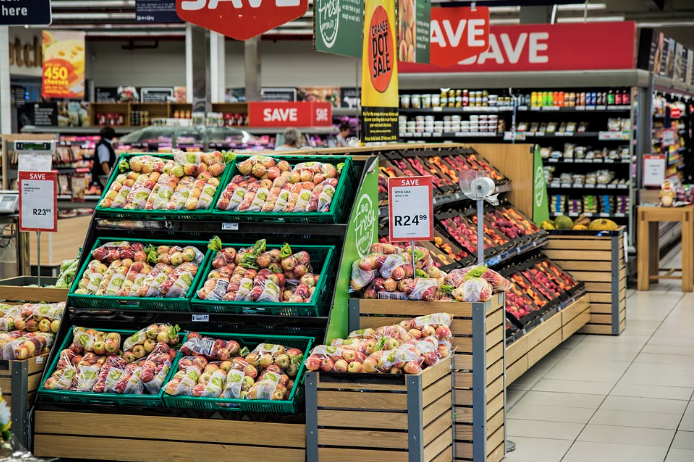Top Tips for Reducing the Cost of Your Grocery Shopping

Here’s how you can reduce the cost of your grocery shopping – fast!
 Photos By: Pixabay
Photos By: Pixabay
For many of us, buying food and other groceries is very costly, and a huge part of people’s income often goes on grocery shopping. Whether you shop in your local supermarket or you buy your groceries wholesale, identifying potential areas of saving can really help to reduce your monthly outlays. Fortunately, there are many tricks which can help you save money each month on your groceries so that you have more funds to spend elsewhere.
To help everyone look after their families for less, here are our top tips for reducing the cost of your grocery.
1. Don’t Purchase Branded Items
The first way to reduce the amount of money you spend on your grocery shopping is to only purchase generic or store’s own products. Branded products can cost many times that of their generic counterparts without actually having any benefit in terms of quality or performance. Many branded products are actually made in the same factories as non-branded ones and with no difference in their formulas or recipes. The extra cost is often just down to the success of their advertising campaigns which makes them sought-after items.
2. Use Special Coupons
One way that you can get money off particular items is to use coupons when you come to pay. The folks at www.swagbucks.com/shop/gopuff-coupons explain that there are many coupons online which will give you either a percentage discount or a cashback bonus when you make certain purchases. All you have to do is apply the coupon code at checkout and you will automatically receive the special offer. There are also coupons to be found in magazines and newspapers which you can present at grocery stores for savings. Some people are so good at collecting coupons that they can get everything they need at no cost at all and even end up with surplus to sell at a profit.
3. Purchase Your Groceries Wholesale
A great way to save money when buying anything, not just groceries, is to buy them in bulk from a wholesaler. Wholesale products are cheaper than regular products because there are less costs and man hours which go into putting them on the shelf. You can buy groceries directly from an online wholesaler or you can visit Costco or another warehouse store in your area. Some wholesalers require you to purchase a membership card but the cost of this is often covered with just one shopping trip’s worth of savings.
4. Buy Your Food from the Local Market
As well as saving money buying groceries from a wholesaler, you can also make significant savings by going to the local market rather than to a supermarket. Local markets will either sell products which they have received directly from the farmer, butcher or baker, or these people may sell their produce at the market themselves. Groceries are much cheaper at local markets because you won’t pay for packaging, shipping or any of the extras which are required to take produce from farm to supermarket shelf. The more often you visit your local market and the better you get to know the stallholders, the cheaper the deals you will be able to negotiate.

5. Grow your Own Food
In order to cut out all additional costs entirely, one of the cheapest and healthiest ways to get food is to grow it yourself. There are many fruits and vegetables which you can cultivate with just a small amount of land for super cheap. As well as the savings you will make, you can also ensure that your produce is totally organic so that it is healthier for you and your family. Make sure that you check which fruits and vegetables are best to grow in your climate and that you are cultivating them in the right season. The only grocery expenses you will then have are for those items which you can’t produce yourself. If you have a little more space, you could even consider raising chickens for eggs or even keep a cow to produce your own milk and other dairy products. Pigs are very easy to raise as they can feed solely on food waste and can provide a huge amount of meat for your family.
6. Bring Your Own Shopping Bags
In a push to reduce the amount of plastic being used in order to protect the environment, many supermarkets (and entire countries) have stopped giving out plastic shopping bags to customers. While this is great news for the oceans, it also means that you will need to purchase shopping bags every time you do your grocery shopping unless you bring your own. Invest in a few “bags for life” and remember to keep them in the back of your car each time you go grocery shopping at the supermarket. These bags are better than the old one-use shopping bags anyway as they never split or spill your food everywhere.
7. Look on the Discount Shelves
It is possible to get big savings at the grocery store itself by checking out the discount shelves. These carry items which are on sale because they are slightly damaged or are about to expire. Despite the discount, the items themselves will be perfectly fine, especially if you eat them that same day. It is often just superficial damage to packaging which results in the discount so there are some real bargains to be had. The best time to find great deals is at the end of the day when grocery store managers and owners will look to sell soon-to-be expired food so that they don’t have to throw it away and lose any chance of making money from it.
Grocery shopping can be very expensive but there are ways to make it cheaper. While supermarkets are very convenient as they have everything in one place, you can buy your food cheaper from local suppliers or from a wholesaler. Look out for discount coupons or special sale items and you will be able to dramatically reduce the amount of money you spend on groceries.







Leave a Comment